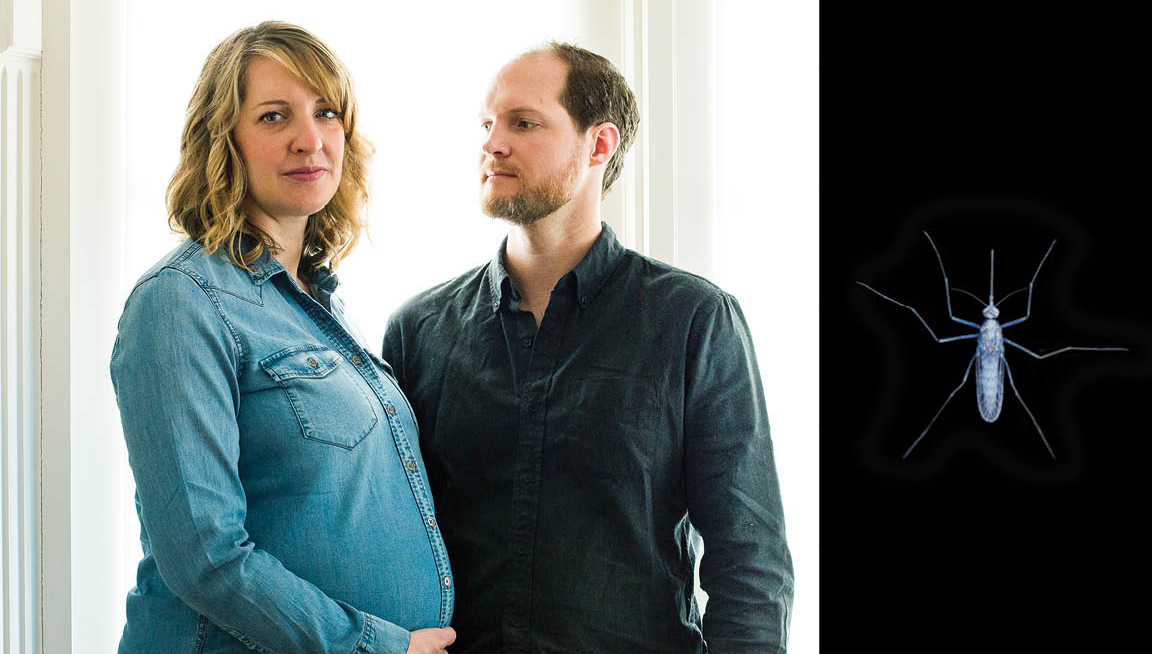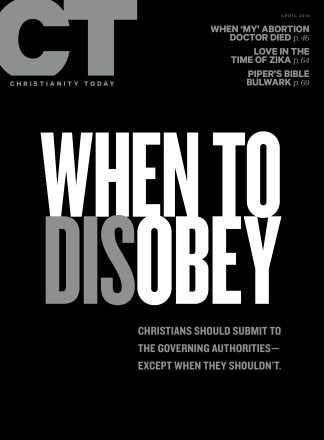Months before our wedding, my fiancé started a toy-manufacturing business to create jobs in Honduras. We moved to Tegucigalpa as husband and wife in 2010, starting our life together in a country with the world’s highest murder rate.
Needless to say, we skipped the honeymoon phase. In addition to the shock of a new country, language, and culture, I faced the violent reality of life in Honduras’s capital. Rates of robbery, rape, and murder climbed to levels unimaginable in Los Angeles, where we lived prior to our move.
Since 2010, the company has taken off, and we’ve settled into life in Central America. But the transition was never easy for me. I tried different jobs and ministry roles, unable to find the right fit. We struggled to conceive, and doctors in both Honduras and the States couldn’t discern why we were infertile.
Last summer, we stopped treatments to give my body and heart a break. And then, in August, I got pregnant.
We decided years ago that if we ever conceived, we would stay in Tegucigalpa for the birth. Despite the political upheaval and health scares, including outbreaks of mosquito-borne viruses like dengue and chikungunya, we believed this is where God had called us. When we first heard of the Zika virus spreading through Honduras and other parts of Central America in early 2016—about halfway through my pregnancy—we determined not to waver.
But Zika quickly proved different. In addition to symptoms like fever, rash, and joint pain, the virus is believed to pose severe threats to unborn children though researchers are still investigating the link. Pregnant women who contract Zika risk giving birth to babies with microcephaly, a defect that causes abnormal head and brain development. There’s no vaccine to stop the virus, and experts don’t know whether the risk is confined to a certain period of the pregnancy or continues after birth. Some country officials have advised women to try to delay pregnancy for up to two years; many Zika patients don’t even have symptoms or realize they have been infected.
Early this year, Chris and I began wearing long sleeves, pants, socks, closed-toed shoes, and bug spray any time we left the house. Our doctor measured our son’s head with every ultrasound.
Within one week in January, we watched the number of Zika cases in Honduras jump from 300 to 1,000. By February, it was well over 3,500. Friends and family made worried phone calls: Will you come home? What if you became infected and your son became brain-damaged?
Years ago, we decided Honduras is where we would raise our children and invest in the employees at my husband’s company. Leaving because of Zika wouldn’t be like canceling a Caribbean vacation or postponing a two-week mission trip. It would transform our lives.
We have spent the past six years building not only a business but a community of people for us to work alongside and reach with the gospel. In recent months, I’ve finally found momentum with a women’s Bible study at the factory and have plans to begin offering meals and education (or classes) to our employees. It seems wrong to leave now, especially when we know other pregnant women who face the same risks, yet can’t choose to leave.
We know what many Hondurans assume about North Americans: that we are all wealthy, that we aren’t here for the long-term, that we can leave whenever it benefits us. As friends urge us to return home, we instead think of our team and what our departure would signal. The last thing we want to demonstrate is that our faith depends on our circumstances.
It seems wrong to leave now, especially when we know other pregnant women who face the same risks, yet can’t choose to leave.
If anything, six years in Honduras has taught me the opposite. In the States, we absorbed the belief that God positions us for comfort, safety, and security. Here, I am learning that God’s will often clashes with our personal preferences. When I moved to Tegucigalpa, God immediately stretched me through discomfort and inconvenience. Struggling to learn Spanish, navigating a new city, and observing crime taught me more about who God is and what he wants for me and our marriage. I remember this whenever I am tempted to think I can control my family’s fate if I opt for the safe path.
I think often these days of 20th-century missionary William Borden. Before dying of cerebral meningitis at age 25, he left a future with the family business to share the gospel in China. Despite his father’s threats, he never returned to a life of comfort. He lived by the adage, “No reserve, no retreat, no regrets.” We too want to live with no regrets.
But, having waited so long for the blessing of parenthood, Chris and I feel the weight of that responsibility acutely. We want to be careful stewards of our son’s life. Returning to the States nearly eliminates the chance that I could be infected with the Zika virus. Yet it brings other challenges. I would be leaving behind our church and community. I would have to find a new doctor and begin a new round of birthing classes. Though Chris would visit me whenever possible, I would be going to doctor’s appointments and birthing classes alone. Such a move would be particularly stressful in a season when every baby book and fellow mother tells you to stay put and relax.
I have wrestled with God over which option is driven by trust and faithfulness. Ultimately, my husband and I came to humbly realize all the things we cannot control in our own lives and in our child’s. We based our decision on the greatest priority God has given us in this moment. Right now, our calling to be faithful parents supersedes our calling to Honduras.
Once again, I am sacrificing familiarity and routine—this time for the sake of our baby.
I trust that God will grant our son a chance at a healthy life. At the same time, I trust God to oversee our team in Honduras while we are away. I trust that neither of these things depends on us, but on the God who can be trusted with all things. To fully surrender means God can ask anything of us—whether that’s staying put or leaving.
Again, I find myself packing two suitcases to travel to another country for an uncertain amount of time. But this time, returning “home” to the United States is actually leaving home.
Cindy Haughey was an undergraduate at Taylor University and has a master’s from Trinity Evangelical Divinity School. In addition to working with toy company Tegu, she is a writer, speaker, and world traveler.










